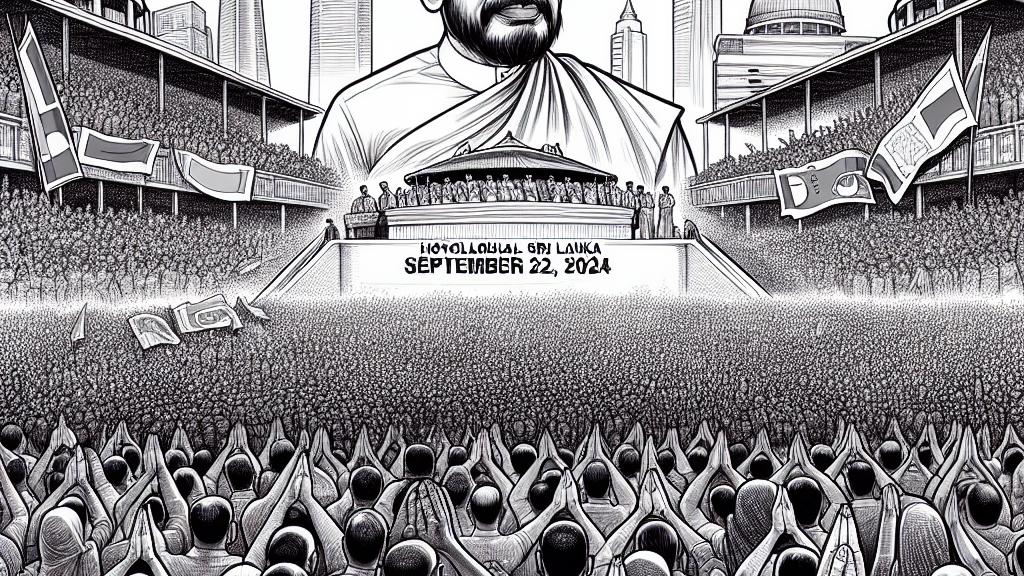Sri Lanka Elects Leftist President Amid Economic Crisis
Overview
- Sri Lanka has made history by electing Anura Kumara Dissanayake as its first leftist president, sparking hopes for transformative change.
- This pivotal election occurs during a severe economic crisis, following the nation’s bankruptcy declared in April 2022.
- Voters are keen on securing ambitious reforms aimed at combating corruption and improving conditions for the underprivileged.

The Election Context
On September 22, 2024, Sri Lanka witnessed a historic political shift as Anura Kumara Dissanayake emerged victorious in the presidential election, garnering over 5.7 million votes. This milestone event unfolded against a backdrop of profound turmoil, with the country struggling under the weight of an unprecedented economic crisis, which led to its bankruptcy mere months prior. Such a setting instills significance in this electoral outcome, as it symbolizes not just a simple change in leadership but a powerful expression of the people’s yearning for reform. Many citizens, dissatisfied with past administrations that have fostered corruption, are now pinning their hopes on Dissanayake, believing he will usher in a new era characterized by integrity and accountability.
Promises of Reform
Dissanayake’s campaign was charged with a promise to tackle systemic corruption head-on and deliver vital support to those most affected by the economic upheaval. His leftist ideology resonates with the population, a segment that has endured years of economic hardship and political favoritism. This desire for radical change mirrors the current political landscape in places like Chile, where President Gabriel Boric is actively challenging the legacies of past dictatorships. Both leaders represent a refusal to accept the status quo, yet they also share the daunting task of transforming paper promises into meaningful policies. The pivotal question remains: can Dissanayake navigate a complex political environment to implement effective reforms that truly benefit the populace?
Public Reaction and Future Prospects
The public's reaction to the election results has been overwhelmingly positive, infused with a sense of renewed hope and excitement for the future. Citizens across the country have rallied behind Dissanayake's vision of a fairer society, eager for comprehensive reforms that could uplift their lives. As Sri Lanka stands at this crossroads of transformation, the stakes could not be higher. The new president faces immense pressure to deliver results, balancing the urgent needs of a struggling economy with the demands for good governance. If Dissanayake succeeds in cultivating trust and cooperation among a diverse political landscape, he could guide Sri Lanka toward a brighter, more equitable future. Indeed, the world will watch closely to see if his presidency will herald a new chapter in the nation’s storied history.

Loading...